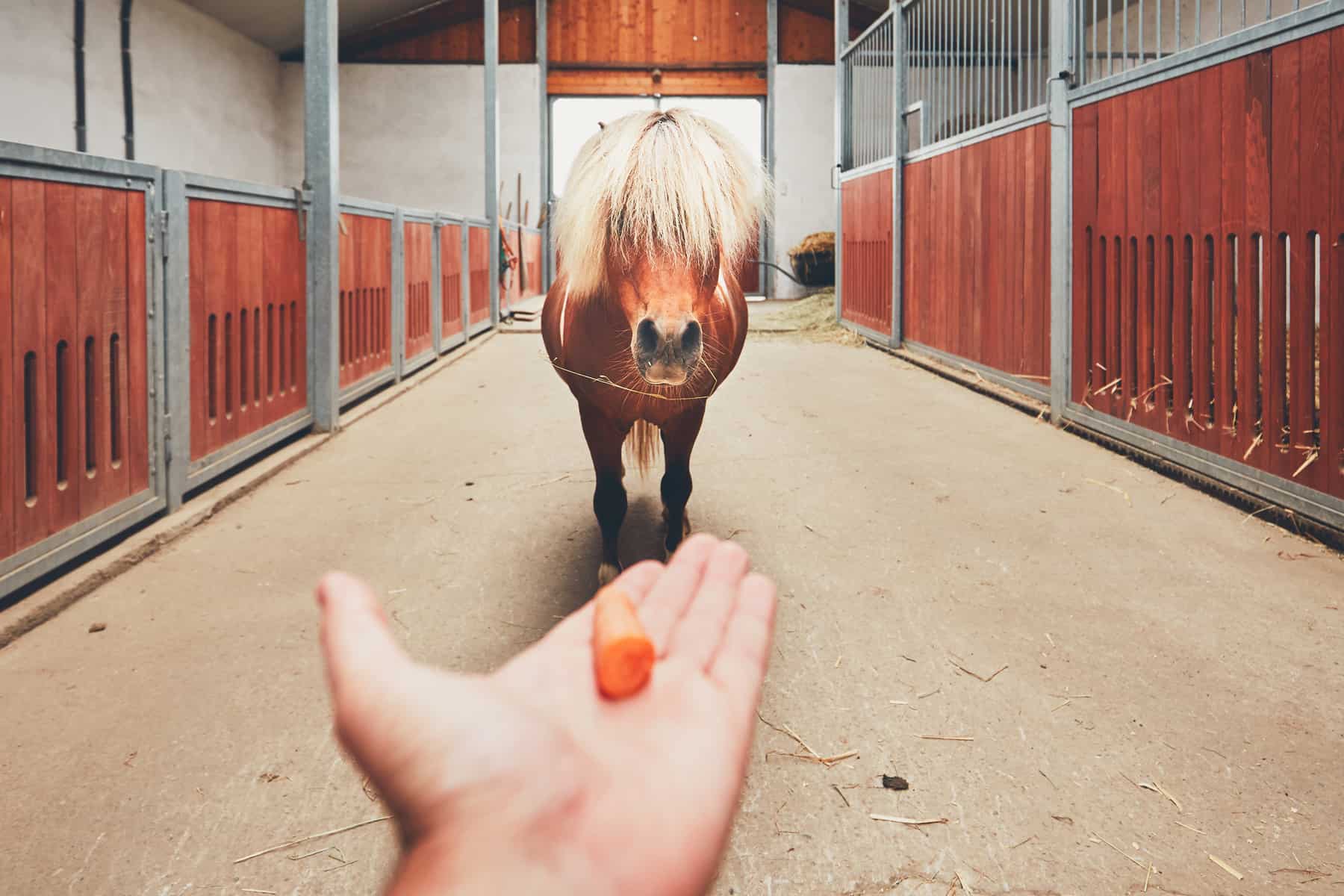Healthy Horse Treats
- Topics: Article, Other Supplements

Fed in moderation, most treats won’t negatively impact a horse’s overall diet.
From simple store-bought peppermints to gourmet homemade “cookies,” owners and feed manufacturers have come up with countless types of treats for our equine friends. We use these as rewards, encouragement, and when we just can’t say “no” to that lovable face hanging over the stall door. But just how good (or bad) are these tidbits for horses? We caught up with Bob Coleman, PhD, equine extension professor at the University of Kentucky, and Kristen Janicki, MS, PAS, research nutritionist for Buckeye Nutrition/Mars Horsecare US Inc., to answer that question.
What is a “Healthy” Treat?
I once purchased a “healthy treat” that was basically a complete vitamin and mineral product for horses, similar to multivitamins that many people take daily. The concept was excellent: to provide a treat for horses on forage-only diets that would also meet their nutritional needs. The problem was that most of my horses wouldn’t eat the treat after smelling it, and those that did spit it back out almost immediately. I noticed it did have a medicinal odor, and being a “nutrition geek” I tasted one of the treats and was reminded of multivitamins I took as a child. I considered adding something to make them more palatable, such as molasses (the “sweet” in sweet feed), to mask the odor and flavor. However, a friend then told me that molasses, with its high sugar content, was neither natural nor healthy (it turns out, though, that studies have shown molasses actually has lower sugar content than good-quality forage).
So with all the conflicting information available, how do you know what makes a treat “healthy” for a horse? “Any feed with a defined nutrient profile can work, as long as the horse owner remembers that it is a treat and should only be given in very small amounts,” Coleman says
Create a free account with TheHorse.com to view this content.
TheHorse.com is home to thousands of free articles about horse health care. In order to access some of our exclusive free content, you must be signed into TheHorse.com.
Start your free account today!
Already have an account?
and continue reading.
Written by:
Liza Holland
Related Articles
Stay on top of the most recent Horse Health news with












